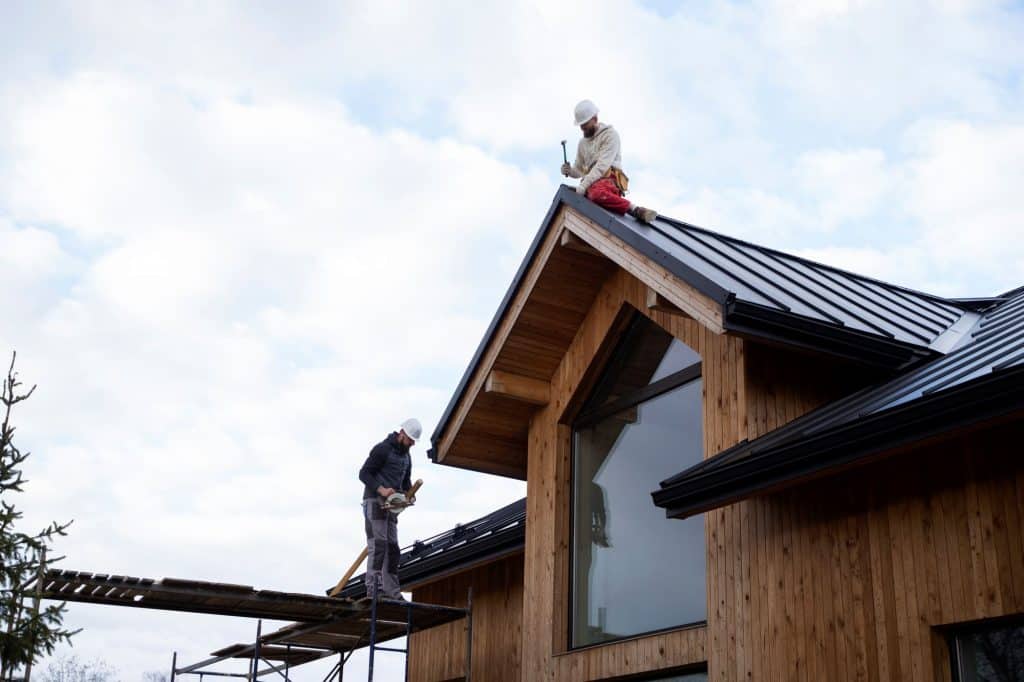House flipping is an investment strategy involving the purchase, enhancement, and profitable sale of homes. It requires funding, dedication, and an understanding of market trends, along with careful planning and budgeting.
Here, we offer a few beginner tips for flipping success.
What Are The Pros And Cons Of Flipping?
House flipping is a high-risk, high-reward endeavor, but you can minimize the risk by working with the pros at Carmody Construction and weighing the pros and cons.
- Profit potential. With planning and proper implementation, house flips can bring high profits quickly.
- A more robust real estate portfolio. Flipping success can expand your portfolio, giving you a better reputation among potential clients and lenders.
- They are boosting the local economy. Flippers help with neighborhood economic revitalization by enhancing homes and increasing property values.
- Personal fulfillment. House flipping offers opportunities for creative expression, which can be rewarding for owners and buyers.
- Sharper skills. Becoming a house flipper will help you sharpen skills that can be used in other areas, including team management and negotiation.
And now, the disadvantages:
- High risk. House flipping is a significant financial risk. For instance, a sudden market downturn or high renovation costs can lead to sizable financial losses.
- Tax consequences. Flipped houses are subject to capital gains taxes, and it’s essential to weigh profit potential against tax liabilities.
- Time spent. Flips require dedication—finding, financing, renovating, and selling homes takes time.
- Surprise repair costs. Older homes often have hidden problems, which can increase an initial investment and cut into profits.
- Market volatility. Changing market trends may affect flip profitability.
Read on to learn the basic steps in a successful house flip.
Budgeting And Planning

The process starts with a plan that outlines goals, identifies risks, and estimates a budget for acquisition, enhancement, and sale. A detailed budget should consider expenses such as financing costs, property purchases, renovation, market changes, and promotions, and it will reduce the risk of unexpected losses.
Finding Financing
Flippers have various financing options, from personal savings to loans, and choices directly affect profits. While paying cash will help you avoid high interest, it’s not always possible. Cash-out refinancing, HELOCs (home equity lines of credit), and hard money lending are all viable alternatives.
Learning About The Market
When flipping houses, analysis of market trends, property prices, and housing demand will give you valuable insights. By learning about the community in which you’re planning the flip, you’ll find an appropriate property, target the right market segment, and turn a profit.
Finding And Choosing A Property
As you search for a potential flip, consider factors like location, condition, and market demand. Choose a home with a focus on its appreciation potential, renovation costs, and curb appeal. Above all, align your choices with your budget.
Making An Offer
Successful negotiation requires proposing a below-market price and backing the offer with sound reasoning. The lower the purchase price, the higher the profit. Be firm, fair, and willing to walk away when negotiating with sellers.
Renovation
Flipping a house requires renovations because most buyers want livable, ready-made homes. Before selling, make necessary upgrades and repairs to increase the property’s value. Set a timeline, maintain oversight, and consider working with contractors on the most challenging jobs.
Selling For A Profit
When selling a home, focus on the renovations you’ve done. Use home staging, competitive pricing, digital listings, and professional photography to present your flip in the best light. These tactics and working with a local real estate agent will simplify the process.
Our Thoughts
House flipping is a profitable effort when planned carefully. Despite what we see on TV, instant success is rare—and mistakes are inevitable. When flippers find the best financing, work with the right partners, and follow these tips, they’re more likely to succeed.
Starting A Career With House Flipping

We know that investing is an effective option of side hustle. Around 61% of Americans actively invest. A recent Gallup survey finds that real estate is another popular long-term investment option for Americans.
That’s why house flipping is a credible career option, too.
However, you need accurate market intel to be a successful house flipper. Moreover, the real estate market in the US could be more predictable. So, you need to make flipping decisions wisely.
A common trend in house flipping is making decisions based on the location.
Steps To A Successful House-Flipping Career
House flipping can be a lucrative career once you’re greasy with the market.
So, let’s check out the steps to set up your house-flipping career:
- Research your market well and find plausible locations to start house flipping
- Set the right budget
- Seek small-scale investments for your first house-slipping project
Pro Tip: Don’t consider going to other cities to invest in house flipping. Firstly, that will be a costly affair. Secondly, it might turn out to be risky. Try that only when you have abundant experience.
Prefer local search
You only have the best knowledge about the real estate status quo of your residual address. So, forego plans to house flip in faraway cities.
Most beginners start by exploring properties in their residence cities for house flipping.
How Does That Benefit Your Career As A House Flipper?
That’s easy.
You know the best rates at which homes are sold in your locality. Moreover, you can predict which properties will attract the best deals.
In real estate, the quality of a property is not everything. What matters more is the peripheral community. And nobody can judge the pros and cons of your surrounding community.
Some extravagant factors in the community might appeal to prospective factors. At the same time, you might also know any eccentricities in the community.
Is your locality in the vicinity of a popular entertainment source? Does it have other amenities?
Or it’s a tourism hotspot!
Focusing on such factors and finding a reason to invest in local properties is better.
Role Of Real Estate Agents In Your Career
I found a home, but you must go overboard with your budget to claim it.
Dont.
Instead, work with a real estate agent. Most agents have access to real estate MLS systems.
It is a database that lists all available real estate in your locale. It also marks the prospective future listings.
End Statement
House flipping can be a rewarding career. However, it requires tactical moves with hard work. Often, conditions may not be suitable for you.
But don’t wait for the tailwind. Work hard and find an ideal property even under adverse circumstances.
Read Also:






















